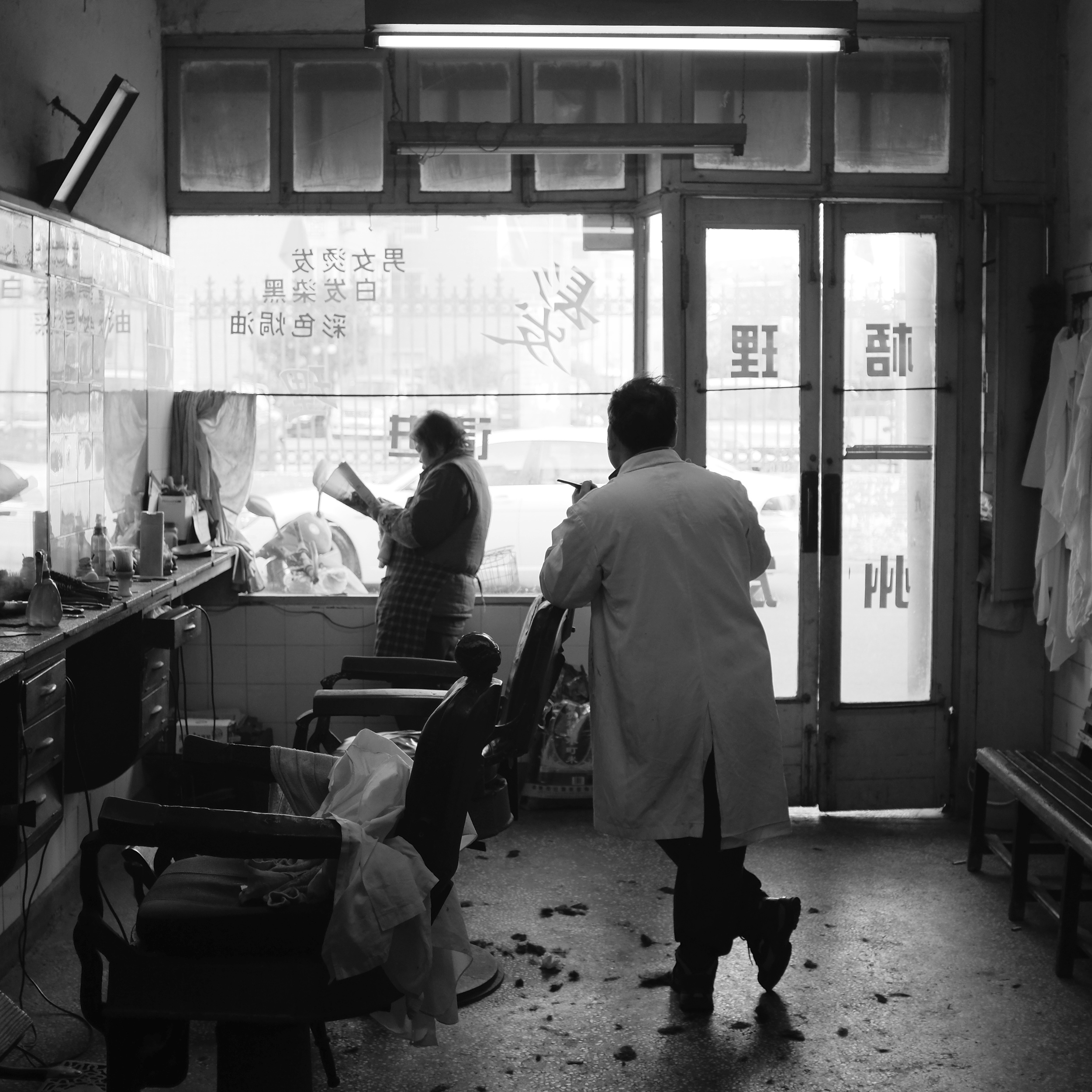A fading craft and space: Wu Zhou Barbershop and its owner Mr. Ding.
In Jan. 2014, I stumbled upon this barbershop on Wu Zhou road in Hong Ko district Shanghai. It was a cold and sunny afternoon, exactly one month before Chinese New Year.
The shop was quiet and smoky; Mr. Ding, the barber, was there in his regular posture, leaning against a chair and smoking a cigarette. His wife with her head down was knitting a scarf by the window at the corner of the store. Together, they have been running this barbershop for the last 40 years.
My initial impression when I entered the shop was a sense of comfort, a sort of warm and cozy feeling, very inviting actually. Every piece of furnitures, equipments and the sound from the beat-up radio seem to have a lot of stories behind. I decided to find out more about this place.
"May I take some photos?" so I asked. "Do whatever you want," said Mr. Ding "There are people coming here to take pictures all the time." Just like that, I was constantly going back to this Wu Zhou Barbershop for the next 3 weeks.
In the process of following up with this place, I found out that this whole neighborhood will be torn down. What a shame. It gave me a sense of responsibility and opportunity to preserve this place with the only way I know - making a little film to save it with images and sound.
My approach was to be like a fly on the wall, just observing what goes on in the shop with my camera. People were so generous and understood the meaning behind my act. So not once, people complained about me pointing the camera at them. Instead, they were open to share their stories and memories of their experience with this barbershop.
Mr. Ding's customers range from 5 years old to 90 years old, from migrant workers to people who came here since they were kids. I saw a 70 years old lady taking her 90 years old mother here for a perm. This shop has experienced thru every social movements and it survived. The shop is a collective memory.
Although it is sad to see this place go, it is also an opportunity for those folks to better their living condition. "It is embarrassing to tell you that all these year, I have been living here without a flushing toilet." said Dr. Ding. Old folks were no longer be able to climb up and down thru those narrow and steep staircase. I appreciate that Mr. Ding gave me the access to witness the lives in this community and the folks' warm welcome and stories shared with me.











